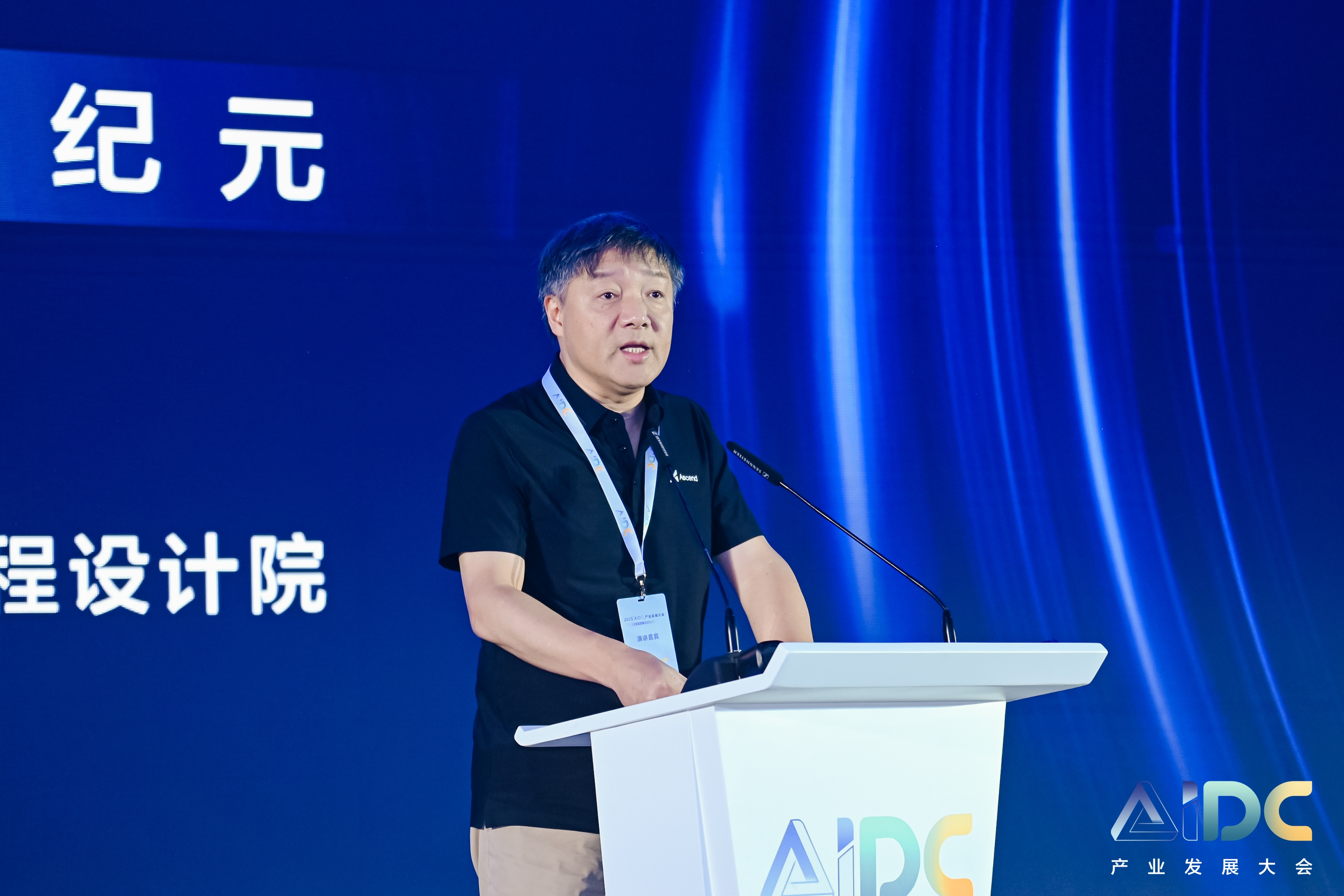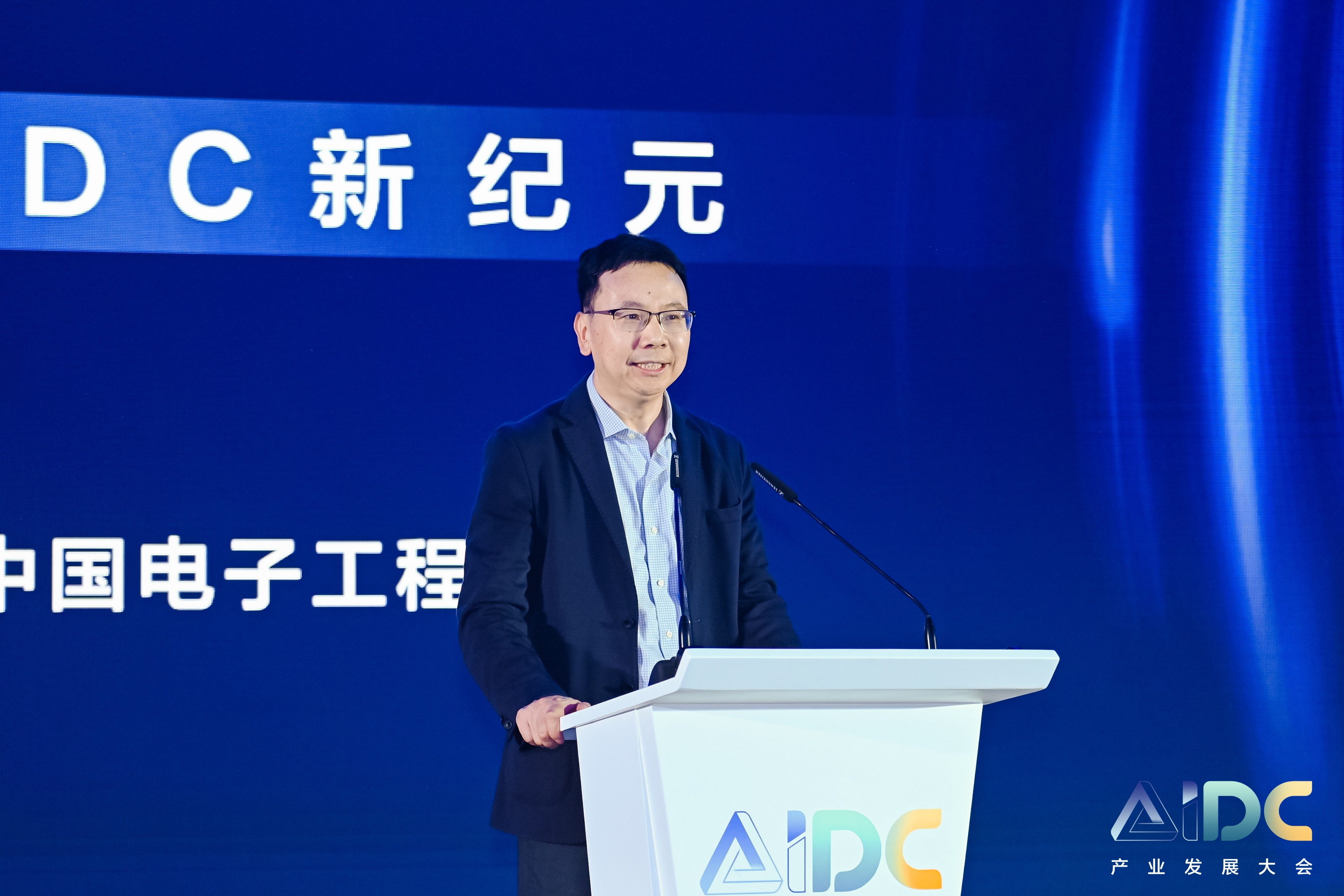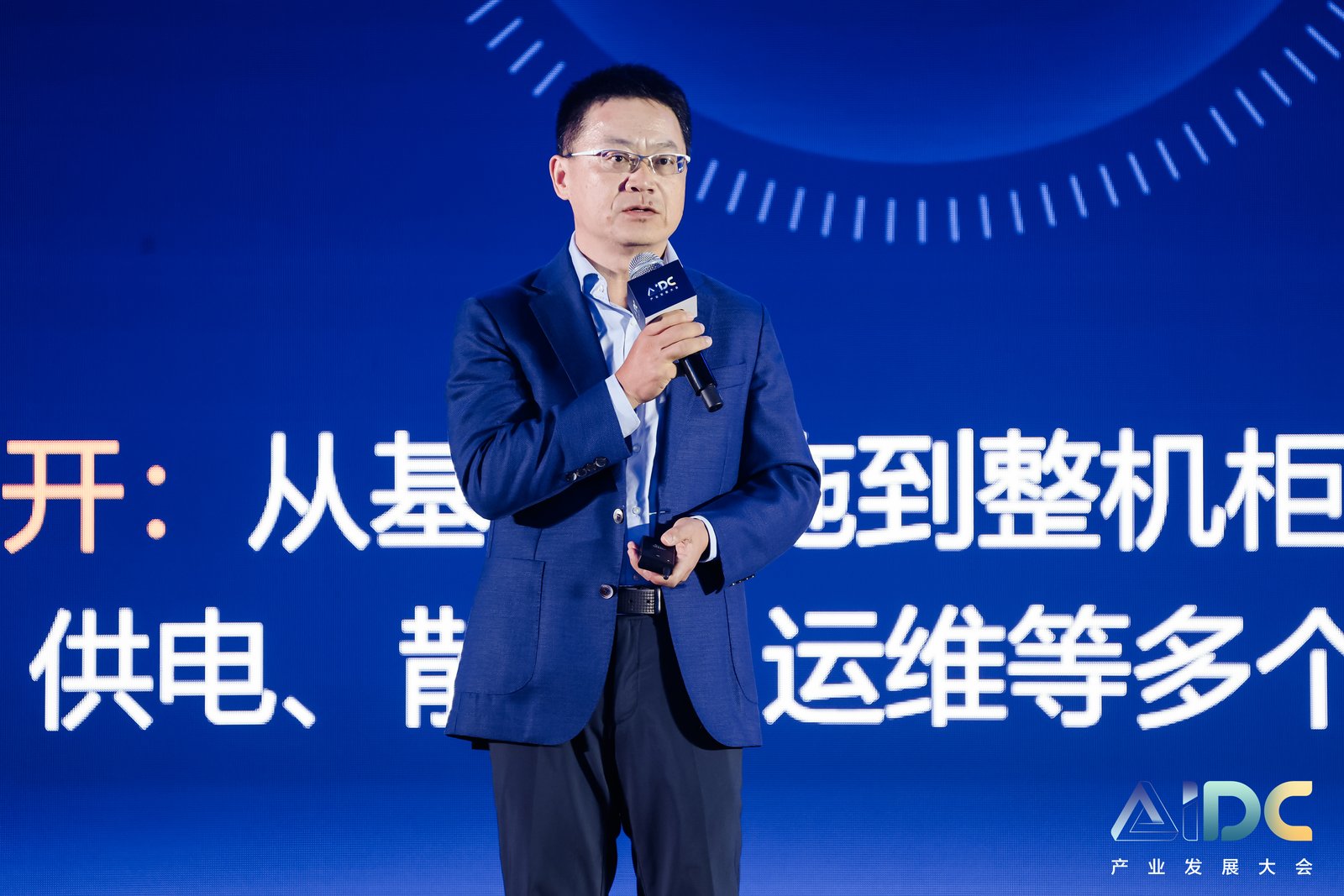

News
author:GCC
Guest speech: Strategic guidance and ecological co-construction
At the opening of the conference, Professor Jin Hai, Chairman of the Global Computing Consortium (GCC), delivered a keynote speech. He highlighted the "thermal, electrical, and space" challenges in AIDC infrastructure development, along with the persistent issues of "AI server room" dilemmas caused by inadequate standards and lengthy construction cycles. Professor Jin urged the industry chain to accelerate standardization efforts, overcome technical bottlenecks, and foster collaborative innovation ecosystems. He emphasized that this conference should serve as a catalyst for advancing the innovative development of the AIDC industry.

Jin Hai, Chairman of the Global Computing Alliance (GCC)
Huawei Director and ICT BG CEO Yang Chaobin pointed out that AIDC is the critical infrastructure of the intelligent computing era. With the rapid increase in AI computing power and chip performance, liquid-cooled data centers are becoming an inevitable choice for AIDC. Facing the current challenges in constructing liquid-cooled facilities, we need to collaborate across the industry chain to accelerate productization and standardization of liquid-cooled facilities, speed up the deployment and adoption of AIDC, and jointly promote the development of the AI industry.

Yang Chaobin, Director of Huawei and CEO of ICT BG
Insight into trends and opportunities
Chen Daji, Vice President of the China Electronics Technology Standardization Institute, pointed out that the AIDC industry is developing rapidly while facing challenges in planning, delivery, and operation. The industry needs a new AIDC standard and specification oriented towards emerging trends, proposing new technical requirements in aspects such as structure, electrical systems, and liquid cooling, to jointly promote the vigorous and healthy development of AIDC and the AI industry.
Demand drives, drawing a blueprint together
The industry is actively responding to the transformative impact of surging AI computing demands on data centers. Wang Guojun, General Manager of Data Center Infrastructure at JD Cloud, highlighted innovative practices and remarkable achievements in energy conservation at intelligent computing centers. These efforts have established replicable and measurable experiences, providing valuable support and practical models for AIDC's green and sustainable development.
Zhang Jing, Operations Director of the Computing Power Platform Department at iFLYTEK Technology Center, emphasized that AI-driven data center (AIDC) development must transition from "component stacking" to "vertical collaboration and integrated optimization". She highlighted that advancing large-scale AI models requires next-generation computing infrastructure featuring "high-density power supply, efficient heat dissipation, green energy efficiency, and rapid deployment", while proposing corresponding design concepts and cutting-edge technologies through systematic thinking.
Gao Congwen, Senior Project Director at China Mobile's Digital Intelligence Department, presented the "N+X" Intelligent Computing Center framework. He emphasized building a wide-area computing network for elastic scheduling and collaboration. Drawing from multi-scenario implementations, he shared insights into facility planning, network interconnection, and operational management. Proposing the "computing-energy synergy" concept to enable large-scale deployment and sustainable operation of AIDC, he called for industry collaboration to advance liquid cooling technology development, refine standardization systems, and create efficient power supply solutions with dynamic energy-saving capabilities.
Practice empowerment, explore innovation
In the face of challenges and opportunities in AIDC construction, the industry has not only actively explored innovative approaches but also focused on practical implementation, collectively seeking effective solutions to break through development bottlenecks. Xia Liankun, General Manager of China Electronics Engineering Design Institute, proposed a standardized, agile, prefabricated, and intelligent AIDC planning and design approach in response to AIDC's multifaceted challenges such as high power density and high fault impact, providing crucial references for scientific planning and forward-looking design.
From blueprint to engineering implementation, turning opportunities into achievements requires the accumulation of innovation and practice across every link in the industrial chain. Zhu Zhaosheng, General Manager of Huawei Cluster Computing, elaborated on the construction practices of liquid-cooled machine rooms, proposing to advance civil engineering and large electromechanical systems while promoting standardization and productization of small electromechanical systems. This approach enables rapid deployment of computing power equipment and eliminates the "0" waiting period for computing resources, demonstrating Huawei's practical experience in engineering delivery of liquid cooling solutions.
At this conference, Huawei released the "AIDC Data Center Reference Design White Paper", which consolidates comprehensive practices and accumulated experience across multiple fields including converged computing, digital energy, integrated services, and Huawei Cloud. This further provides the industry with implementable reference practices.
Shen Cheng, design director of Runze Technology Development Co., LTD., analyzed how AIDC transformation reconstructs the value chain, emphasized that planning and design should take into account both the present and the future, and respond to AI computing power iteration through modular and wind-liquid compatible solutions. He also shared Runze's practical experience and insights on future trends.
Guo Zhen, President of Qinhuai Data Design Institute, explored the transformation of AIDC and the collaborative evolution of computing power, proposing solutions for power conversion into computing capacity and agile delivery. He emphasized that carbon reduction throughout the entire lifecycle of AIDC requires comprehensive planning covering site selection, design, construction, and operation. Looking ahead, he stressed the importance of strengthening infrastructure through high-elasticity buildings, efficient power distribution/liquid cooling systems, and green low-carbon measures.
Standards lead, ecology build
As stakeholders actively explore breakthrough strategies and drive industrial implementation, the more critical next step lies in establishing unified industry standards and building consensus. Peng Peng, Council Member and Secretary-General of the Global Computing Alliance, outlined GCC's efforts in AIDC ecosystem development. He emphasized fostering open communities, promoting standardization and technical specification formulation, while calling on all industry chain participants to engage actively.

Peng Peng, Council member and Secretary-General of the Global Computing Alliance
Subsequently, a total of 14 representatives from the upstream and downstream of the industry chain jointly released the "AIDC Infrastructure Specification", marking that the construction of AIDC has entered a new stage, which will promote the development of the industry towards standardization and scale.
Roundtable forum, discussing the future of industry
At the conclusion of the conference, under the chairmanship of Zhang Guangbin from YiQi Research Institute, industry leaders including Jin Yuehong from JD Cloud Computing Co., Ltd., Liu Dan from China Mobile Communications Group Design Institute, Liu Tao from GDS Holdings Limited, and Miao Fuyou from the Global Computing Consortium (GCC) gathered for a roundtable discussion on the future development of AIDC. Focusing on liquid cooling technology implementation, participants thoroughly analyzed challenges such as coolant leakage and cold plate corrosion issues, while exploring solutions for material compatibility between cooling agents and components. Additionally, they shared innovative practices and recent advancements in the "Dual Zero Initiative", providing strategic insights to guide the future evolution of AIDC.
The successful hosting of the first AIDC Industry Development Conference has charted the course for the future development of the AIDC industry and laid a solid computing power foundation for the take-off of China's digital economy. In the future, all parties will continue to join hands to build an AIDC industrial ecosystem and co-create a new era of intelligent computing.